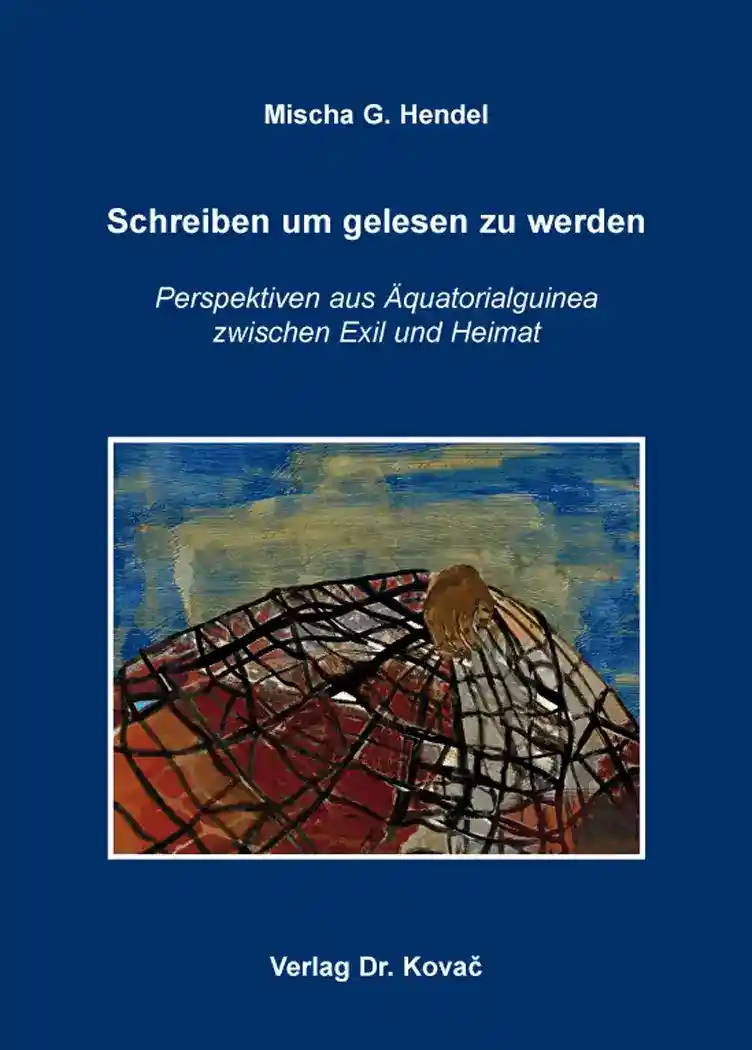Mischa G. HendelSchreiben um gelesen zu werden – Perspektiven aus Äquatorialguinea zwischen Exil und Heimat
Studien zur Romanistik, volume 28
Hamburg 2016, 278 pages
ISBN 978-3-8300-8671-0 (print)
ISBN 978-3-339-08671-6 (eBook)
Rezensionen
...ein unschätzbarer Fundus an einzigartigen Hintergrundinformationen zur Entstehung, Entwicklung, Ausdrucksfindung und Motivation der äquatorialguineischen Schriftliteratur.
Hendel hat mit seiner Arbeit erreicht, die LeserInnen für die weitere Beschäftigung mit der Literatur Äquatorialguineas zu begeistern. Er wird damit das kritische Wissen einer vernachlässigten Region erweitern.
About this book deutschenglishespañol
In Equatorial Guinea, the third largest oil producer in Africa south of the Sahara and the only African country with Spanish as the official language, access to art and culture is greatly restricted. The government doesn’t show much interest in cultural matters. Based on these premises, Mischa G. Hendel searches for the significance of literature in Equatorial Guinea and illustrates the conditions for production and for reception of literature. Hendel gives a panorama and analyzes the evolution of Equatoguinean literature in consideration of the writers‘ topics and concerns. The Guinean authors write for an extremely limited international audience, having lost or never had many readers within Equatorial Guinea. Furthermore, Hendel examines the forms of censorship in Equatorial Guinea (indirect censorship) and dwells on the social function of literature.
The majority of the Equatoguinean writers and intellectuals see themselves obliged to escape from persecution and lack of culture and go into exile, mainly to Spain. Through the texts and experiences of Donato Ndongo Bidyogo and Juan Balboa Boneke, Mischa G. Hendel analyzes the reasons for and the impact of exile. Exile doesn’t only stand for a geographical distance to the homeland; it is also a mental construction. This text demonstrates that exile can already emerge in the homeland, a phenomenon which the author calls inner exile. The exposure of Spain’s own past and the diffident politics of memory of the former colonial power are explained in context with the historical and political process of Equatorial Guinea. Hendel demonstrates that Spain’s materia reservada law, which prohibited the public expression of topics related to Equatorial Guinea between 1971 and 1976, still has consequences on the current political and cultural situation in Equatorial Guinea, as well as the perception of the country on an international scale. Although the materia reservada law is long since history, the population, especially the intellectuals and creative people, remain isolated and live under the effects of human rights abuse, repression, corruption and cultural indifference.
